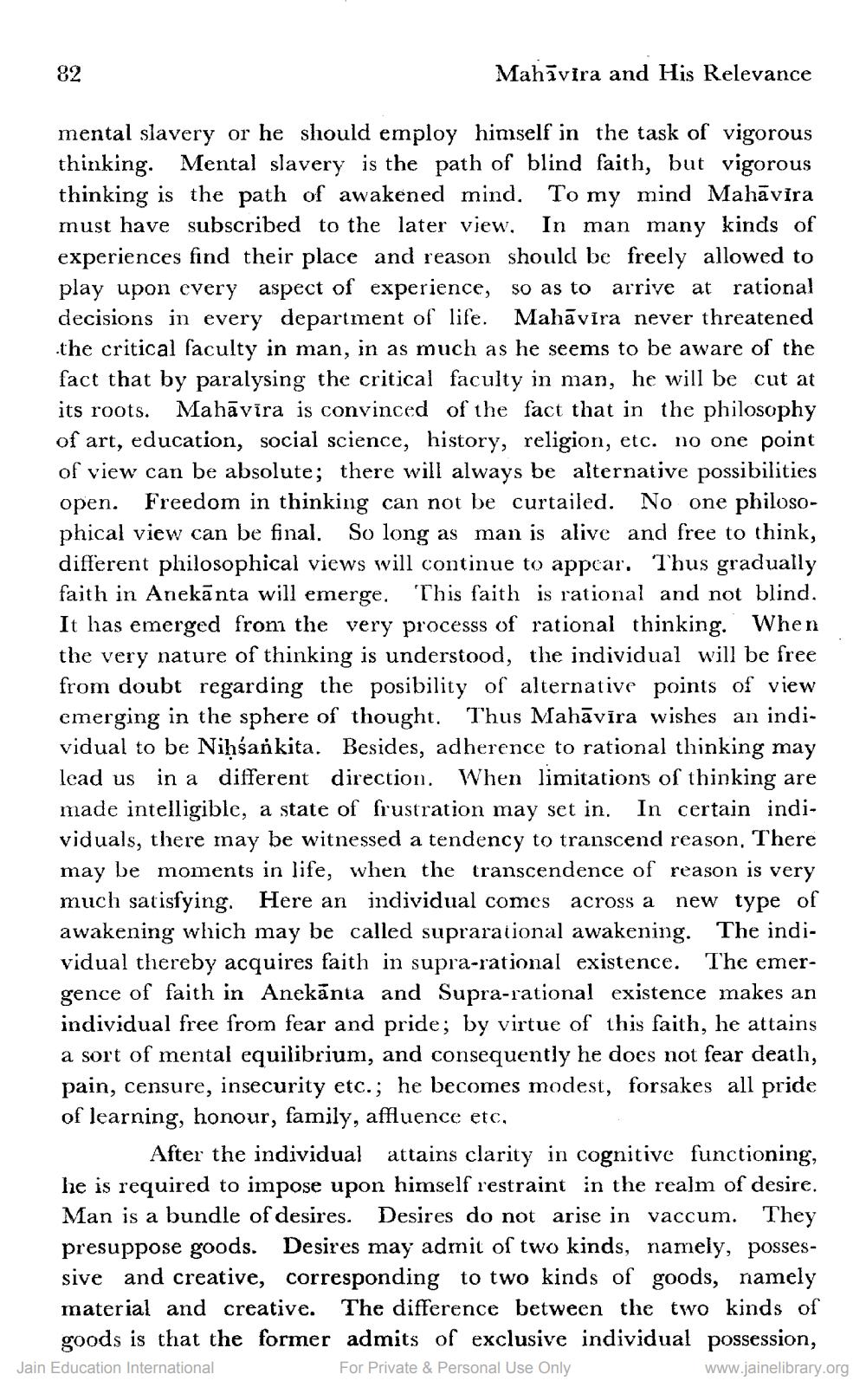________________
82
Mahāvira and His Relevance
mental slavery or he should employ himself in the task of vigorous thinking. Mental slavery is the path of blind faith, but vigorous thinking is the path of awakened mind. To my mind Mahāvira must have subscribed to the later view. In man many kinds of experiences find their place and reason should be freely allowed to play upon every aspect of experience, so as to arrive at rational decisions in every department of life. Mahāvīra never threatened the critical faculty in man, in as much as he seems to be aware of the fact that by paralysing the critical faculty in man, he will be cut at its roots. Mahāvīra is convinced of the fact that in the philosophy of art, education, social science, history, religion, etc. no one point of view can be absolute; there will always be alternative possibilities open. Freedom in thinking can not be curtailed. No one philosophical view can be final. So long as man is alive and free to think, different philosophical views will continue to appear. Thus gradually faith in Anekānta will emerge. This faith is rational and not blind. It has emerged from the very processs of rational thinking. When the very nature of thinking is understood, the individual will be free from doubt regarding the posibility of alternative points of view emerging in the sphere of thought. Thus Mahāvīra wishes an individual to be Nihsankita. Besides, adherence to rational thinking may lead us in a different direction. When limitations of thinking are made intelligible, a state of frustration may set in. In certain viduals, there may be witnessed a tendency to transcend reason. There may be moments in life, when the transcendence of reason is very much satisfying. Here an individual comes across a new type of awakening which may be called suprarational awakening. The individual thereby acquires faith in supra-rational existence. The emergence of faith in Anekānta and Supra-rational existence makes an individual free from fear and pride; by virtue of this faith, he attains a sort of mental equilibrium, and consequently he does not fear death, pain, censure, insecurity etc.; he becomes modest, forsakes all pride of learning, honour, family, affluence etc,
After the individual attains clarity in cognitive functioning, he is required to impose upon himself restraint in the realm of desire. Man is a bundle of desires. Desires do not arise in vaccum. They presuppose goods. Desires may admit of two kinds, namely, possessive and creative, corresponding to two kinds of goods, namely material and creative. The difference between the two kinds of
goods is that the former admits of exclusive individual possession, Jain Education International For Private & Personal Use Only
www.jainelibrary.org




